- Home
- Philip Pullman
Daemon Voices Page 7
Daemon Voices Read online
Page 7
Through the wide Ethiopian to the Cape
Ply stemming nightly toward the pole. So seemed
Far off the flying fiend…
I was lucky enough to study Books I and II for A level, and to do so in a small class whose teacher, Miss Enid Jones, had the clear-eyed and old-fashioned idea that we would get a good sense of the poem if, before we did anything else to it, we read it aloud. So we took it in turns, in that little sixth-form classroom in Ysgol Ardudwy, on the flat land below the great rock of Harlech Castle, to stumble and mutter and gabble our way through it all, while Miss Jones sat with arms comfortably folded on her desk, patiently helping us with pronunciation, but not encumbering us with meaning.
I can’t remember whether the passage above was one of the ones I read when it was my turn, but I do know that it stayed with me for years, and still has the power to thrill me. Ply stemming nightly toward the pole—in those words I could hear the creak of wood and rope, the never-ceasing dash of water against the bows, the moan of the wind in the rigging; I could see the dim phosphorescence in the creaming wake, the dark waves against the restless horizon, the constant stars in the velvet sky; and I saw the vigilant helmsman, the only man awake, guiding his sleeping shipmates and their precious freight across the wilderness of the night.
To see these things and hear them most vividly, I found that I had to take the lines in my mouth and utter them aloud. A whisper will do; you don’t have to bellow it, and annoy the neighbours; but air has to pass across your tongue and through your lips. Your body has to be involved.
Through many a dark and dreary vale
They passed, and many a region dolorous,
O’er many a frozen, many a fiery alp,
Rocks, caves, lakes, fens, bogs, dens, and shades of death,
A universe of death, which God by curse
Created evil, for evil only good,
Where all life dies, death lives, and nature breeds
Perverse, all monstrous, all prodigious things,
Abominable, inutterable, and worse
Than fables yet have feigned, or fear conceived,
Gorgons, and Hydras, and Chimeras dire.
[BOOK II, LINES 618–628]
The experience of reading poetry aloud when you don’t fully understand it is a curious and complicated one. It’s like suddenly discovering that you can play the organ. Rolling swells and peals of sound, powerful rhythms and rich harmonies are at your command; and as you utter them you begin to realise that the sound you’re releasing from the words as you speak is part of the reason they’re there. The sound is part of the meaning, and that part only comes alive when you speak it. So at this stage it doesn’t matter that you don’t fully understand everything: you’re already far closer to the poem than someone who sits there in silence looking up meanings and references and making assiduous notes.
By the way, someone who does that while listening to music through earphones will never understand it at all.
We need to remind ourselves of this especially if we have anything to do with education. I have come across teachers and student teachers whose job was to teach poetry, but who thought that poetry was only a fancy way of dressing up simple statements to make them look complicated, and that their task was to help their pupils translate the stuff into ordinary English. When they’d translated it, when they’d “understood” it, the job was done. It had the effect of turning the classroom into a torture chamber, in which everything that made the poem a living thing had been killed and butchered. No one had told such people that poetry is in fact enchantment; that it has the form it does because that very form casts a spell; and that when they thought they were bothered and bewildered, they were in fact being bewitched, and if they let themselves accept the enchantment and enjoy it, they would eventually understand much more about the poem.
But if they never learn this truth themselves, they can’t possibly transmit it to anyone else. Instead, in an atmosphere of suspicion, resentment and hostility, many poems are interrogated until they confess, and what they confess is usually worthless, as the results of torture always are: broken little scraps of information, platitudes, banalities. Never mind! The work has been done according to the instructions, and the result of the interrogation is measured and recorded and tabulated in line with government targets; and this is the process we call education.
However, as I say, I was lucky enough to learn to love Paradise Lost before I had to explain it. Once you do love something, the attempt to understand it becomes a pleasure rather than a chore, and what you find when you begin to explore Paradise Lost in that way is how rich it is in thought and argument. You could make a prose paraphrase of it that would still be a work of the most profound and commanding intellectual power. But the poetry—its incantatory quality—is what makes it the great work of art it is. I found, in that classroom so long ago, that it had the power to stir a physical response: my heart beat faster, the hair on my head stirred, my skin bristled. Ever since then, that has been my test for poetry, just as it was for A. E. Housman, who dared not think of a line of poetry while he was shaving, in case he cut himself.
THE POEM AS A STORY
The question “Where should my story begin?” is, as every storyteller knows, both immensely important and immensely difficult to answer.
“Once upon a time,” as the fairy-tale formula has it; but once upon a time there was—what? The opening governs the way you tell everything that follows, not only in terms of the organisation of the events, but also in terms of the tone of voice that does the telling; and not least, it enlists the reader’s sympathy in this cause rather than that.
So when the story of Paradise Lost begins, after the invocation to the “heavenly muse,” we find ourselves in hell, with the fallen angels groaning on the burning lake. And from then on, part of our awareness is always affected by that. This is a story about devils. It’s not a story about God. The fallen angels and their leader are our protagonists, and the unfallen angels, and God the Father and the Son, and Adam and Eve, are all supporting players. And we begin in medias res, in the middle of the action, with the first great battle lost, and the rebel angels just beginning to recover their senses after their vertiginous fall. What an opening! And what scenery!
Satan first looks around at:
The dismal situation waste and wild,
A dungeon horrible, on all sides round
As one great furnace flamed, yet from those flames
No light, but rather darkness visible
Served only to discover sights of woe,
Regions of sorrow, doleful shades, where peace
And rest can never dwell, hope never comes
That comes to all: but torture without end
Still urges, and a fiery deluge, fed
With ever-burning sulphur unconsumed…
[BOOK I, LINES 60–69]
C. S. Lewis remarks that for many readers, it’s not just the events of the story that matter: it’s the world the story conjures up. In his own case, he loved the Leatherstocking Tales of James Fenimore Cooper not just for “the momentary suspense but that whole world to which it belonged—the snow and the snow-shoes, beavers and canoes, war-paths and wigwams, and Hiawatha names.”
The same thing is true for some writers of stories. They are drawn to a particular atmosphere, a particular kind of landscape; they want to wander about in it and relish its special tastes and sounds, even before they know what story they’re going to tell. Whether Milton worked like that I don’t know, but it’s easy to see that his imagination delighted in the scenery of hell, and we see that from the very beginning, with Satan surveying his “dungeon horrible.”
Books I and II are full of these magnificent and terrifying landscapes, and when the tale reaches Paradise itself, in Book IV, the
descriptions reach a peak of sensuous delight that we can almost taste.
But landscapes and atmospheres aren’t enough for a story; something has to happen. And it helps the tightness and propulsion of the story enormously if it’s the protagonist himself who sets the action going, who takes the initiative. It also encourages our interest in the protagonist to develop into admiration. That is exactly what happens here, as the fallen angels, who are devils now, gather themselves after their great fall, and begin to plot their revenge.
Revenge is one of the great story themes, of course, and it’s inspired storytellers of every rank and in every age, from Homer and Aeschylus and Shakespeare to Jeffrey Archer. The interest here is in how Milton handles the narrative. How well does he tell the story?
I think it could hardly be told any better. After their first struggle on the burning lake, the fallen angels hold a great debate in Pandemonium, where the characters of their leaders are vividly revealed: Moloch, the fearless, savage warrior; Belial, graceful, false, and hollow, counselling “ignoble ease and peaceful sloth”; Mammon, intent only on gold and riches; and then Beelzebub, “majestic though in ruin,” who sums up all the preceding arguments and then points the way to another world altogether, “the happy seat / Of some new race called Man,” and suggests that they make that the target of their vengeance. We can see and hear the plan taking shape, we can feel the surge of determination and energy it brings, and inevitably that makes us curious to know how they’ll bring it off. There is a sort of curiosity that isn’t short-circuited by our knowledge of how things did, in fact, turn out: Frederick Forsyth’s The Day of the Jackal demonstrated that although we know full well that General de Gaulle was not assassinated, we are still eager to read about how he might have been.
And Milton is careful to remind us that it was Satan himself who first thought of this plan, and it’s Satan who sets out across the wastes of hell to find his way to the new world. The hero is firmly in charge.
If the opening of a story is important, the closing of one part of it—a chapter, a canto—is important in a different way. The purpose here is to charge the forthcoming pause with tension and expectation. Popular storytellers have always had a firm grasp of this principle; it’s exactly what Conan Doyle does, for example, at the end of the first episode of The Hound of the Baskervilles, in the Strand Magazine for August 1901. Dr. Mortimer has just been describing the mysterious death of Sir Charles Baskerville, and mentions the footprints nearby. “A man’s or a woman’s?” asks Holmes, and Dr. Mortimer replies, “Mr. Holmes, they were the footprints of a gigantic hound!”
There the episode ends. There was no shortage of eager buyers for the September issue.
Storytelling principles hold true, whatever the subject, whatever the medium. Time the pause right, and the audience will be eager for what follows. The break after the end of the second book of Paradise Lost is powerfully charged with tension because it obeys that principle. After his journey to the gates of hell, and his encounter with Sin and Death, Satan sees the distant vastness of heaven:
And fast by hanging in a golden chain
This pendant world, in bigness as a star
Of smallest magnitude close by the moon.
Thither full fraught with mischievous revenge,
Accursed, and in a cursed hour he hies.
[BOOK II, LINES 1051–1055]
And there Book II ends, and we pause with that image in our minds. This newly created world, suspended in its golden chain, so beautiful and fresh, knows nothing of what is coming towards it. But we know. To cite Alfred Hitchcock again, who knew more about suspense than most other storytellers, you can depict four men sitting around a table calmly playing cards, and the audience will be on the edge of their seats with tension—as long as the audience knows what the card-players don’t, namely that there is a bomb under the table about to go off. Milton knew that too.
There are examples of his great storytelling power all the way through—far too many to mention here. But one we should look at is the very end of the poem. Like the beginning, the end of a story is such an important place that it has a traditional formulaic tag, but “and they lived happily ever after” certainly won’t do in this case. Adam and Eve have chosen to disobey the explicit command of God, and the consequences of this have been laid out for them not only by their own experience of guilt and shame, but by the narrative of the future they’ve heard from the angel Michael. They must leave Eden: Paradise is now irrecoverably lost. This is a part of the story that has often been illustrated, and in a picture the scene is indeed intensely dramatic, with the man and woman in tears, and the angel with the fiery sword expelling them—just as it is in Medina’s illustration.
But the story closes on a mood, a tender emotional harmony, that is both crystal-clear and profoundly complex. Part of its complexity depends on the interplay between the past and the future, between regret and hope, and this is the very thing that’s so difficult to convey in a picture, where the only tense is the present.
The best way to experience the full richness of this mood is to read the last lines of the poem aloud, as I’ve suggested earlier, and succumb to the enchantment, because at this point poetry and storytelling come together perfectly.
High in front advanced,
The brandished sword of God before them blazed,
Fierce as a comet; which with torrid heat,
And vapour as the Libyan air adust,
Began to parch that temperate clime; whereat
In either hand the hastening Angel caught
Our lingering parents, and to the eastern gate
Led them direct, and down the cliff as fast
To the subjected plain; then disappeared.
They, looking back, all the eastern side beheld
Of Paradise, so late their happy seat,
Waved over by that flaming brand; the gate
With dreadful faces thronged, and fiery arms:
Some natural tears they dropt, but wiped them soon;
The world was all before them, where to choose
Their place of rest, and Providence their guide:
They, hand in hand, with wandering steps and slow,
Through Eden took their solitary way.
[BOOK XII, LINES 632–649]
“The world was all before them” implies not only an end but a new beginning. There are many more stories to come.
PARADISE LOST AND ITS INFLUENCE
A poem is not a lecture; a story is not an argument. The way poems and stories work on our minds is not by logic, but by their capacity to enchant, to excite, to move, to inspire. To be sure, a sound intellectual underpinning helps the work to stand up under intellectual questioning, as Paradise Lost certainly does; but its primary influence is on the imagination.
Michael Burgesse after John Baptist Medina, for Book XII of Paradise Lost
So it was, for instance, with the greatest of Milton’s interpreters, William Blake, for whom the author of Paradise Lost was a lifelong inspiration. “Milton lovd me in childhood and shewd me his face,” he claimed, and in The Marriage of Heaven and Hell he wrote what is probably the most perceptive, and certainly the most succinct, criticism of Paradise Lost: “The reason Milton wrote in fetters when he wrote of Angels & God, and at liberty when of Devils and Hell, is that he was a true Poet, and of the Devil’s party without knowing it.” And Blake’s continuing and passionate interest in Milton resulted in a long (and, frankly, difficult) poem named after the poet, as well as a series of illustrations to Paradise Lost which are some of the most beautiful and delicate watercolours he ever did.
Other poets at the same period felt the influence of Milton, Wordsworth in particular, who began one of his sonnets with the words:
Milton! Thou shouldst b
e living at this hour:
England hath need of thee:
And very near the beginning of his own great long poem, The Prelude, Wordsworth deliberately echoes the phrase in the closing lines of Paradise Lost:
The earth is all before me…
—as if he’s taking hold of a torch passed to him by Milton.
Today, nearly three and a half centuries after Paradise Lost was first published, it is more influential than ever. New dramatic adaptations appear on the stage, new illustrated editions are published. It will not go away.
In my own case, the trilogy I called His Dark Materials (stealing that very phrase from Book II, line 916, with due acknowledgement in the epigraph) began partly with my memories of reading the poem aloud at school so many years before. As I talked to my publisher, I discovered that he too remembered studying it in the sixth form, and we sat at the lunch table swapping our favourite lines; and by the time we’d finished, I seemed to have agreed to write a long fantasy for young readers, which would at least partly, we hoped, evoke something of the atmosphere we both loved in Paradise Lost.
So it was the landscape, the atmosphere, that was my starting point. But as the narrative began to form itself on the page, I found that—perhaps drawn by the gravitational attraction of a much greater mass—I was beginning to tell the same story too. I wasn’t worried about that, because I was well aware that there are many ways of telling the same story, and that this story was a very good one in the first place, and could take a great deal of re-telling.
Inevitably, the storyteller’s own preoccupations become visible in the emphasis and the colouring they give to this or that aspect of the tale. In my case, I found that my interest was most vividly caught by the meaning of the temptation-and-fall theme. Suppose that the prohibition on the knowledge of good and evil were an expression of jealous cruelty, and that the gaining of such knowledge were an act of virtue? Suppose the Fall should be celebrated and not deplored? As I played with it, my story resolved itself into an account of the necessity of growing up, and a refusal to lament the loss of innocence. The true end of human life, I found myself saying, was not redemption by a non-existent Son of God, but the gaining and transmission of wisdom, and if we are going to do any good in the world, we have to leave childhood behind.

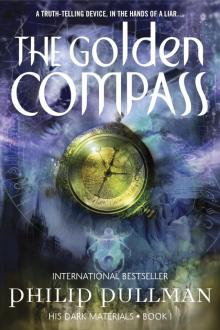 The Golden Compass
The Golden Compass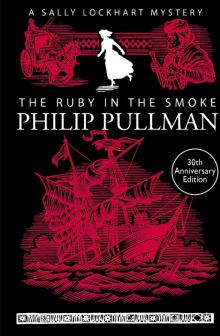 The Ruby in the Smoke
The Ruby in the Smoke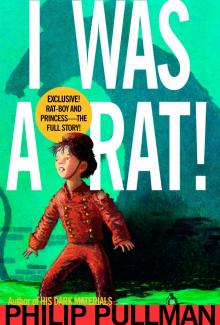 I Was a Rat!
I Was a Rat!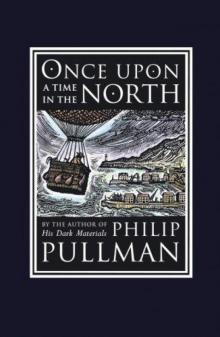 Once Upon a Time in the North
Once Upon a Time in the North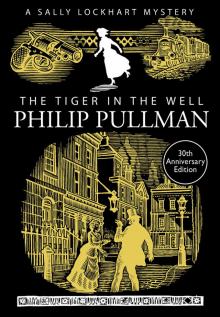 The Tiger in the Well
The Tiger in the Well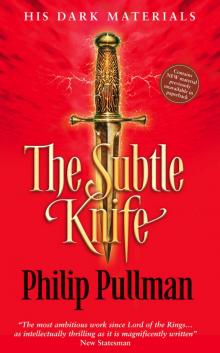 The Subtle Knife
The Subtle Knife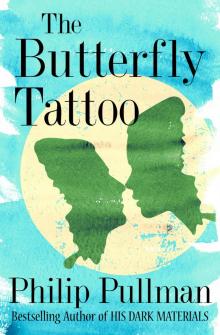 The Butterfly Tattoo
The Butterfly Tattoo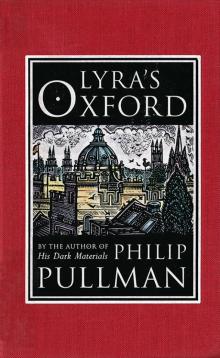 Lyra's Oxford
Lyra's Oxford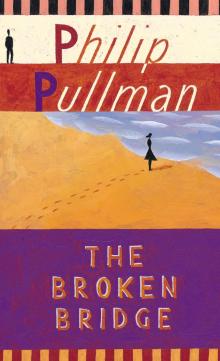 The Broken Bridge
The Broken Bridge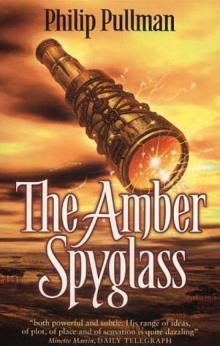 The Amber Spyglass
The Amber Spyglass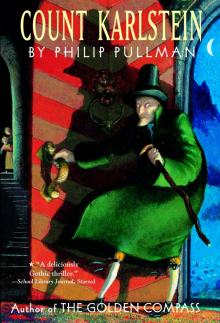 Count Karlstein
Count Karlstein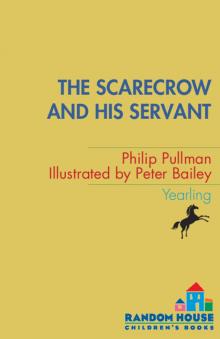 The Scarecrow and His Servant
The Scarecrow and His Servant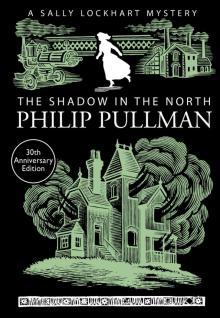 The Shadow in the North
The Shadow in the North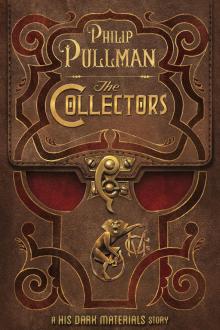 The Collectors
The Collectors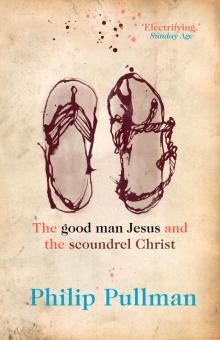 The Good Man Jesus and the Scoundrel Christ
The Good Man Jesus and the Scoundrel Christ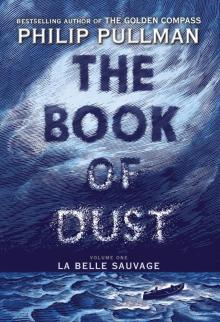 La Belle Sauvage
La Belle Sauvage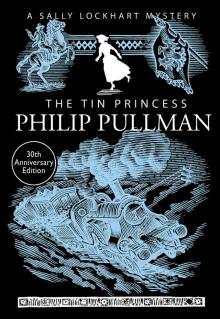 The Tin Princess
The Tin Princess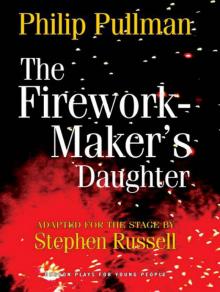 The Firework-Maker's Daughter
The Firework-Maker's Daughter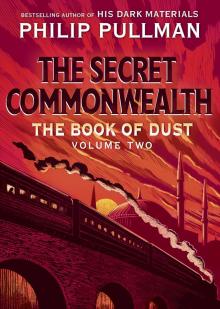 The Book of Dust: The Secret Commonwealth (Book of Dust, Volume 2)
The Book of Dust: The Secret Commonwealth (Book of Dust, Volume 2)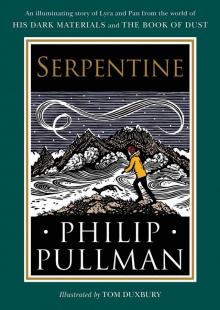 Serpentine
Serpentine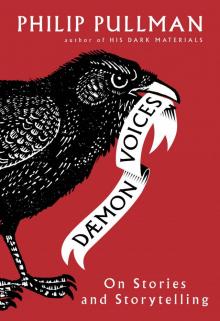 Daemon Voices
Daemon Voices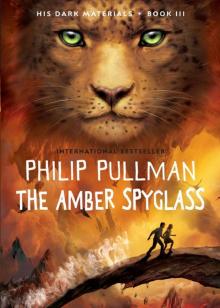 The Amber Spyglass: His Dark Materials
The Amber Spyglass: His Dark Materials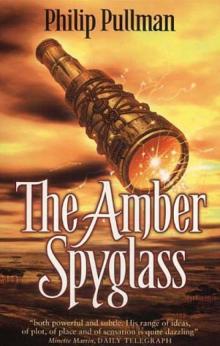 The Amber Spyglass hdm-3
The Amber Spyglass hdm-3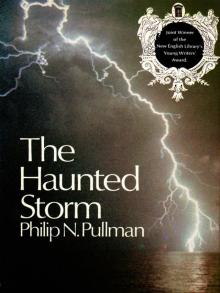 The Haunted Storm
The Haunted Storm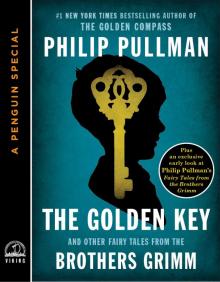 The Golden Key
The Golden Key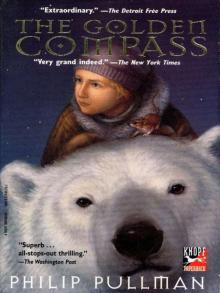 His Dark Materials 01 - The Golden Compass
His Dark Materials 01 - The Golden Compass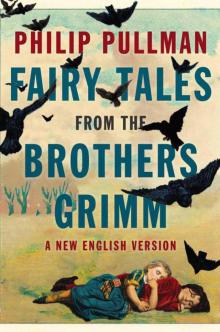 Fairy Tales from the Brothers Grimm: A New English Version
Fairy Tales from the Brothers Grimm: A New English Version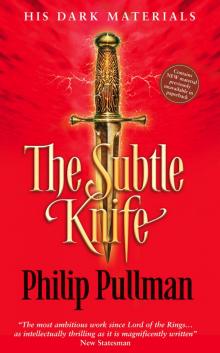 His Dark Materials 02 - The Subtle Knife
His Dark Materials 02 - The Subtle Knife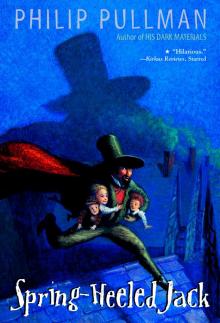 Spring-Heeled Jack
Spring-Heeled Jack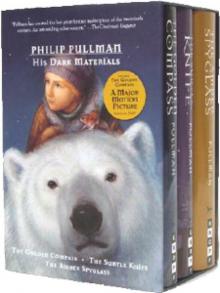 The Golden Compass hdm-1
The Golden Compass hdm-1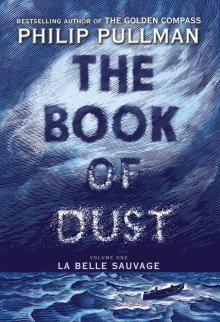 The Book of Dust, Volume 1
The Book of Dust, Volume 1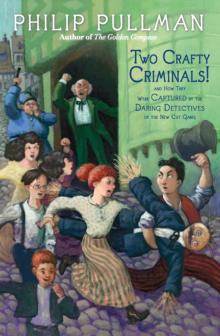 Two Crafty Criminals!
Two Crafty Criminals!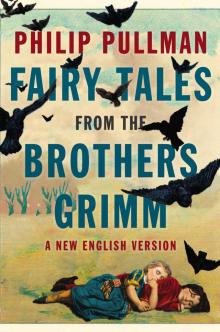 Fairy Tales from the Brothers Grimm
Fairy Tales from the Brothers Grimm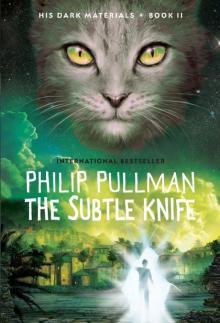 The Subtle Knife: His Dark Materials
The Subtle Knife: His Dark Materials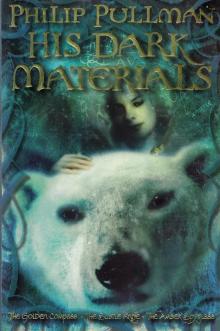 His Dark Materials Omnibus
His Dark Materials Omnibus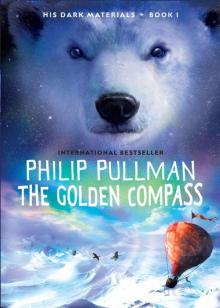 The Golden Compass: His Dark Materials
The Golden Compass: His Dark Materials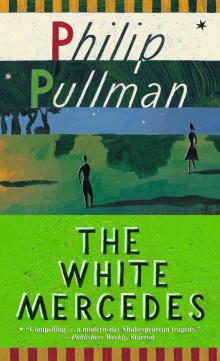 The White Mercedes
The White Mercedes